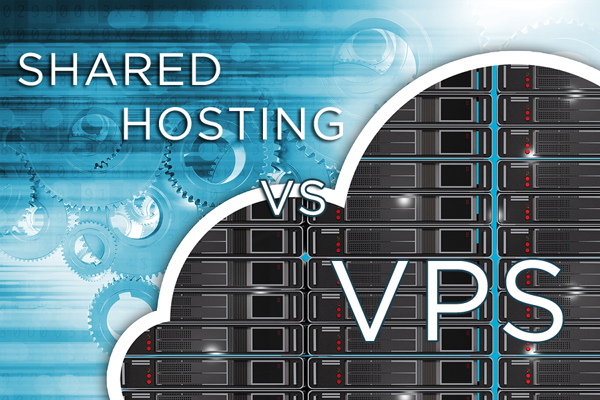Shared Hosting vs. VPS: Is it Time to Upgrade? no comments
When you are first getting started, a shared hosting plan is enough to help you meet your goals. It gives you a place on the web to collect leads, showcase your samples and sell your products and services. The problem with shared hosting, though, is that it comes with limited speed and storage space. Although it’s enough while your business is still small, you might want to think about upgrading as your business starts to grow. Many people have a hard time deciding when to make the switch, and if you can relate to this problem, then the following information will get you started in the right direction. You will learn about the benefits of using a VPS, but you will also get a clear picture of when to take action.
With most shared hosting plans, your performance can be impacted by the way that other people on the server use their resources. If someone else’s website is getting a lot of traffic or being attacked, then your website might slow down or even go offline for a while. If you depend on your site to generate sales, then this downtime is unacceptable. When your customers want to make a purchase, they are not always going to wait for your content to come online again. So any performance issues that you experience can hurt your profitability. A virtual private server, or VPS, will help you avoid that problem by providing you with exclusive resources. A VPS also enables your business to customize the performance resources and software based on your company’s unique needs. Things like Virtual CPUs, memory, and storage space, can all be customized and upgraded on a VPS. With shared hosting, you are limited to the software already installed on the server, and sometimes it may lack a requirement or feature your business needs. But with a VPS, you have full flexibility over which software your virtual server runs, even down to the Operating System.
Another downside of shared hosting is the lack of Administrative or root access to the server. This limitation affects what software you can install as well as the settings and options that you can configure on the server. This can greatly impact the potential of what you are able to do with your website. However with a VPS, you do have root or admin access, giving you the ability to better monitor and troubleshoot your website, with full access to your virtual server’s logs. With a VPS, you have exclusive access and can dictate who shares that access. This allows you to better secure the contents on your server and alleviates the concerns of sharing a server with malicious or careless users. Also because you have full control over the virtual server, you can better enhance and customize its security based on your unique needs.
If you have decided that you need to upgrade, then consider it a good thing. Needing more resources means that your business is growing and that you are attracting plenty of new customers. Having a VPS will help you accommodate even more web traffic, and you will not need to worry about losing sales or customers due to downtime. The speed and performance of a VPS will also help you maintain a professional image, which will enhance and preserve your reputation.
Some business owners procrastinate when they need to upgrade their website, but doing so hurts them more than they likely suspect. Ensuring that your hosting plan is capable of meeting your needs is a vital factor when it comes to getting the most from your business, and you can get started right away.
But, before you select your VPS / Cloud Server Provider, there are 10 Questions you should ask first.
Follow Us :
Share :




